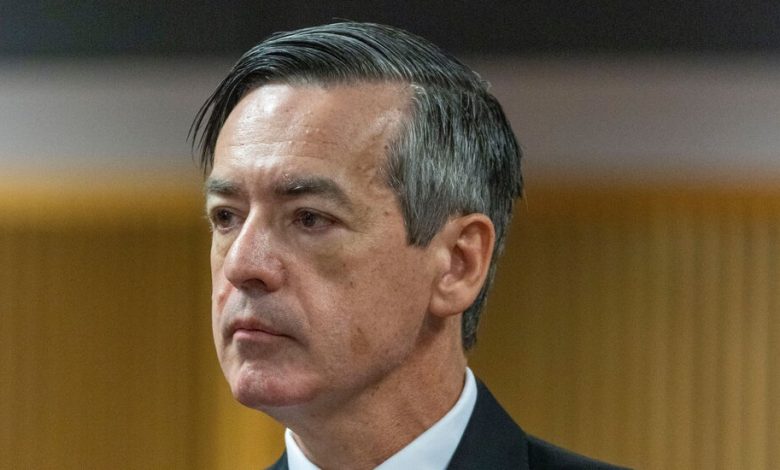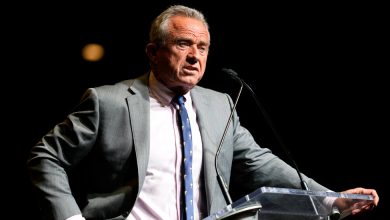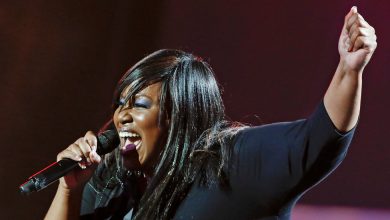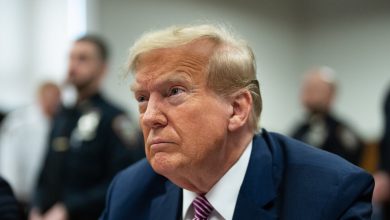From Bush v. Gore to ‘Stop the Steal’: Kenneth Chesebro’s Long, Strange Trip

In January 2001, Kenneth Chesebro was a mild-mannered Harvard lawyer toiling for Al Gore during the 2000 presidential election recount battle. Two decades later, on Jan. 6, 2021, he joined the mob outside the Capitol, reborn as a MAGA-hatted kingpin.
On Friday, Mr. Chesebro’s journey took another turn, when he pleaded guilty in a criminal racketeering indictment in Fulton County, Ga., and agreed to testify against former President Donald J. Trump and other co-defendants, including Rudolph W. Giuliani and several other top Trump aides.
Mr. Chesebro, 62, a workaholic who brought platinum credentials to Mr. Trump’s shambolic legal team, is the third defendant to plead guilty for his role in what prosecutors say was a criminal conspiracy to create fraudulent slates of pro-Trump electors in six states, including Georgia, that Joseph R. Biden Jr. had won.
Mr. Chesebro’s trial, which had been scheduled to begin Monday, will no longer go forward. Liberal lawyers from his former life had hoped it would provide clues to an enduring mystery: What happened to “The Cheese?’’
“I still don’t see what should have been a warning sign,” Laurence H. Tribe, the Harvard constitutional law scholar who was Mr. Chesebro’s mentor, said in an interview. “Was there anything I could or should have done?”
Some former colleagues say Mr. Chesebro’s 180-degree turn came after a lucrative 2014 investment in Bitcoin and a subsequent posh, itinerant lifestyle. Others, like Mr. Tribe, see Mr. Chesebro as a “moral chameleon” and his story an old one about the seduction of power.
“He wanted to be close to the action,” said Mr. Tribe, who is among 60 lawyers and scholars who signed an ethics complaint in New York that could result in Mr. Chesebro’s disbarment. At Harvard, Mr. Chesebro assisted Mr. Tribe on many cases, including Bush v. Gore, which Mr. Tribe, as Mr. Gore’s chief legal counsel, argued before the Supreme Court.
“I was representing a vice president who might become president,” Mr. Tribe said. Mr. Chesebro, he continued, “saw me as having access to power. When the world turned and Donald Trump became president, I stopped hearing from him.”
Mr. Chesebro has responded that in his work for Mr. Trump, he was providing him with the zealous legal advocacy that all clients deserve when he proposed a scheme that he acknowledged at the time “could appear treasonous.”
“It is the duty of any attorney to leave no stone unturned in examining the legal options that exist in a particular situation,” Mr. Chesebro said in an interview with Talking Points Memo, before he was indicted. Beyond that interview, he has said very little, citing his Fifth Amendment rights against self-incrimination for most of a deposition he gave to the House committee investigating the Jan. 6 attacks.
Emails released in the run up to Mr. Chesebro’s trial suggest it was not just the law that drove him. In emails to the other Trump lawyers fighting to overturn the 2020 results, Mr. Chesebro estimated the odds of the Supreme Court stepping in at 1 percent. Still, he added, appealing to the high court has “possible political value.”
After his guilty plea on Friday, Mr. Chesebro’s lawyer, Scott R. Grubman, said in an email that “Mr. Chesebro is glad to be able to move on with his life and avoid spending even a minute in jail.” Mr. Grubman noted that Mr. Chesebro had pleaded guilty to one count of conspiracy, rather than the racketeering charge.
‘The Cheese’ Rises
Mr. Chesebro grew up in Wisconsin Rapids, in the heart of the state. His father, Donald Chesebro, was a high school music teacher, clarinetist and local bandleader inducted into the Polka Hall of Fame.
Mr. Chesebro graduated from Northwestern University and went on to Harvard Law School, where in a nod to his roots in America’s dairyland classmates dubbed him “The Cheese.” (His name is actually pronounced CHEZ-bro.)
His classmates remember him as intelligent and clever among the students who clustered around Mr. Tribe. They describe him as socially awkward — “Hi, it’s um, Ken,” he would say on phone calls — and in trying to ingratiate himself with faculty staff members ended up pestering them by hanging around a little too long at their desks.
But he worked hard, pulling all-nighters in writing briefs, especially if one was going to have Mr. Tribe’s name on it.
Mr. Chesebro graduated from law school in 1986 and secured a coveted job, clerking in Washington for U.S. District Court Judge Gerhard A. Gesell, who presided over some of the most pivotal political cases of the 1970s and 1980s.
Judge Gesell, who died in 1993, ruled against the Nixon administration’s effort to stop The Washington Post and The New York Times from publishing the Pentagon Papers about America’s involvement in Vietnam. He presided over several Watergate trials, ruling that President Richard M. Nixon’s office tape recordings were in the public domain because they had already been played in court, and that Nixon’s firing of Watergate special prosecutor Archibald Cox was illegal.
The energetic judge prided himself on moving swiftly through his caseload with the help of a single clerk, who from 1986 to 1987 was Mr. Chesebro.
Early one morning the judge entered his chambers to find Mr. Chesebro asleep on a sofa. A former clerk recalled that Mr. Chesebro confessed to him that without telling the judge, he had been living in the courthouse. The judge was generous with his staffers, the former clerk said, and had Mr. Chesebro told him he needed housing, he likely would have helped, the clerk said.
After his clerkship Mr. Chesebro did not join the government or a big plaintiffs’ firm, as many Gesell protégés did, but moved back to Cambridge and hung out his own shingle. For the next two decades he did occasional work for Mr. Tribe, writing briefs for his mentor.
In 1994 he married Emily Stevens, a physician. Around the same time he began writing appellate briefs for a slew of cases brought by smokers against the major American tobacco companies. He registered to practice in multiple states, and crisscrossed the country.
Holly Hostrup, a California lawyer who worked with Mr. Chesebro on appellate briefs defending multibillion-dollar verdicts against Philip Morris, recalled him as a fine lawyer. “He was obviously bright and had good arguments and had good experience and had been hired onto big cases and won big cases,” she said. Ms. Hostrup belongs to a lawyers’ email list and said that Mr. Chesebro had been weighing in on tobacco cases as recently as this year.
After Mr. Chesebro’s indictment Ms. Hostrup asked an expert in courtroom psychology to help her understand: “How does a person who worked on all those cases on the plaintiffs’ side become a MAGA Republican?”
“To my mind,’’ she said, “it was like turning around and going to work for Philip Morris.”
Richard Daynard, a Northeastern University law professor and president of its Public Health Advocacy Institute, devised the legal strategy for suing the tobacco giants. “Ken was a guy with really interesting ideas, and proud of them,” he recalled.
“I can see the seduction,” he added, speaking of Mr. Chesebro’s embrace by Trump World. “I’m a Democrat, and if I had some bright ideas Biden’s advisers were taking seriously, that’s a big deal, a kind of opportunity.
“But of course I’m not about to throw my body over the tracks by saying this is a wonderful human being and whatever he was doing had to be for good reason.”
Sudden Wealth, Severed Ties
During the 2000 presidential election recount battle in Florida, Mr. Chesebro served on the research team assisting Mr. Tribe and other legal luminaries representing Mr. Gore. After Mr. Gore lost, Mr. Tribe and Mr. Chesebro worked together on a few more big lawsuits, then largely went separate ways.
But they stayed in touch. Mr. Chesebro’s 2014 investment in Bitcoin netted him “several million dollars,” he wrote in an email to Mr. Tribe that was quoted in a recent article in Air Mail. His marriage ended, and Mr. Chesebro acquired expensive homes in Boston and Manhattan, and a villa in Puerto Rico.
Soon after Mr. Chesebro’s big payday, his name began appearing on legal briefs filed by far-right conservatives, including John Eastman and a former Wisconsin judge, James Troupis. All three were described as co-conspirators in the federal indictment for the 2020 election scheme. He made hefty campaign donations to far-right Republicans, maxing out to Mr. Trump in 2020.
Mr. Troupis appealed to Mr. Chesebro for help several days after the election. According to the Georgia indictment, Mr. Chesebro drafted a flurry of incriminating memos.
In emails laying out the false electors plan, Mr. Chesebro misinterpreted Mr. Tribe’s work on Bush v. Gore,repeatedlyciting it to support his theories. Mr. Tribe called him out in an article in August titled “Anatomy of a Fraud.”




